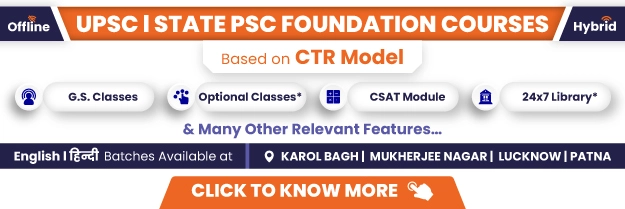Charter Act 1793 |
Charter Act 1793: The East India Company’s Dominance in India
The Charter Act 1793, also known as the East India Company Act 1793, was a significant law passed by the British Parliament. Its main purpose was to extend the East India Company’s trading rights in India for another 20 years. These exclusive trading privileges had originally been granted to the company under the Regulating Act of 1773. Essentially, the Charter Act 1793 allowed the East India Company to maintain its dominance in India. It’s important to note that this act didn’t introduce major changes to how India was governed or how the British supervised the company’s operations.
Charter Act 1793: Provisions and the Extension of East India Company’s Authority
The Charter Act 1793 marked a significant milestone in British India, as it prolonged the East India Company’s authority in the region for an additional two decades and expanded the British territorial influence. Here are the key provisions of this act:
- Government Representation: The Charter Act 1793 clarified that the East India Company operated on behalf of the British government. This solidified the British government’s control over Indian territories.
- Financial Obligation: The East India Company was required to remit an annual sum of five lakh pounds to the British government, after covering essential expenses, dividends, salaries, interest, and other charges using Indian revenue.
- Appointment Changes: The Governor General, governors, and the commander-in-chief now needed royal approval for their appointments.
- Monopoly on Trade: Both individuals and Company personnel were permitted to engage in trade in India under the Company’s license, granting the Company a monopoly over Indian trade. This was known as ‘country trade’ or ‘privilege’ and resulted in the shipment of opium to China.
| Also Read: Amending Act 1786 |
- Empowered Governor General: The Governor General gained increased powers, including the ability to override decisions made by the council under specific circumstances. Additionally, the Governor General held superior authority over the governors of Madras and Bombay.
- Appointment of Vice President: In the absence of the Governor General from Bengal, they could appoint a Vice President from among the civilian members of the Council.
- Separation of Revenue and Judiciary: The act separated revenue administration from judicial functions, leading to the discontinuation of the Maal Adalats, or revenue courts.
- Payment from Indian Revenue: Members of the Home Government were funded from Indian revenue, a practice that persisted until 1919.
- Reconstitution of Board of Control: The composition of the Board of Control changed, now consisting of a President and two junior members who were not required to be members of the Privy Council.
- Financial Responsibility: The salaries of the staff and the Board of Control were now charged to the company.
- Restrictions on Company Officials: Senior company officials were prohibited from leaving India without prior permission, with such an action considered a resignation.
The Charter Act 1793 had a profound impact on the governance and commerce of British India, with these provisions shaping the course of history in the region.
Features of the Charter Act 1793 in British India: Impact on Governance, Trade, and Sovereignty
The features of Charter Act 1793 are given below:
- Improved Judiciary: With the Charter Act 1793, the separation of revenue administration from the judicial system led to a more efficient functioning of the courts, addressing their overburdened and understaffed status.
- British Sovereignty: This act clarified that the British crown’s authority was now supreme over the Indian territories, curbing the extensive freedom previously enjoyed by East India Company officials.
| Also Read Amending Act 1781 |
Royal Appointments: Important figures like the Governor General, governors, and the Commander-in-Chief were to be appointed through royal decree, introducing transparency and accountability into administrative appointments.
- Extended Trade Rights: The East India Company gained an additional 20 years of trade privileges, allowing both individuals and company personnel to engage in trade within India under the Company’s license.
- Centralized Authority: The Governor General’s powers were bolstered, granting the ability to override decisions made by regional governors in Madras or Bombay and their council under specific circumstances.
- Opium Trade: The Charter Act 1793 expanded the scope of trade licenses, particularly for opium trade with China.
- Financial Impact: Members of the Home Government were to be funded from Indian revenue, a practice that persisted until its reversal in 1919, affecting the financial state of the exchequer.
These changes brought significant alterations to British India’s governance, legal system, and trade dynamics during that period.
Charter Act 1793 Governor General: Lord Cornwallis and the Shaping of British India
Lord Cornwallis was Bengal’s Governor General in the year 1793. In 1793, the Charter Act granted the East India Company an additional two decades of trading privileges. Lord Cornwallis, who had the authority to override his Council at the time of his appointment, did not see this power extended to all future Governors or Governors-General in the Charter Act 1793. This Act also emphasized the authority of the Governor-General over the Bombay and Madras Presidencies.
Charter Act 1793: Empowering the British East India Company in UPSC History
This British Parliament Act is famously referred to as the Charter of the British East India Company. It came into effect on August 7, 1793, during the Second Anglo-Mysore War. This charter essentially provided the British East India Company with an official government-issued license to conduct trade. One of its key provisions outlined the governance structure, establishing a Governor and Company of Adventurers (equivalent to a modern-day Board of Directors) to oversee company affairs. Additionally, it mandated the British East India Company’s authority over the Company in all aspects.
Furthermore, the charter set forth specific financial requirements, requiring the Company to have a share capital of 1.2 million pounds. Each individual share was valued at £100. This pivotal document essentially laid the groundwork for the British East India Company’s operations during that time.
Drawbacks of the Charter Act 1793 on India’s Economy and Population
The Charter Act 1793 had significant negative impacts on the Indian population, exacerbating their subordinate position under British rule.
One of the key provisions of the Charter Act 1793 was that it allowed the members of the Board of Control to be paid from Indian revenues rather than funds from the British Exchequer. This shifted the financial burden onto India itself.
Furthermore, this act extended the Company’s trading privileges for another twenty years. This extension fostered monopolistic practices and exploitation within the Indian market.
Another noteworthy aspect of the Charter Act 1793 was its emphasis on the Governor General’s authority, overshadowing the other two Presidencies and undermining the concept of decentralization.
Ultimately, this act transferred sovereignty to the British Parliament, solidifying India’s status as a true colonial territory.
|
UPSC Notes Related Links |
|
|---|---|
| Indian Polity Notes | Fundamental Rights |
| Fundamental Duties | Pitt’s India Act |
Charter Act 1793 FAQs
Q.1) What was the Charter Act 1793?
Ans. The Charter Act 1793, also known as the East India Company Act 1793, was a crucial piece of legislation enacted by the British Parliament. Its primary purpose was to extend the charter of the East India Company, granting them the exclusive right to conduct trade in India for an additional 20 years. This privilege had initially been granted to the company through the Regulating Act of 1773.
Q.2) Who introduced the Charter Act 1793?
Ans. The British Parliament enacted the Charter Act 1793, solidifying the East India Company’s trade monopoly in India.
| Must Read | |
| NCERT Notes For UPSC | UPSC Daily Current Affairs |
| UPSC Blogs | UPSC Daily Editorials |
| Daily Current Affairs Quiz | Daily Main Answer Writing |
| UPSC Mains Previous Year Papers | UPSC Test Series 2024 |













